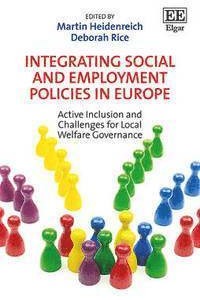
Liknande böcker
Towards Convergence in Europe : Institutions, Labour and Industrial Relations
Bok av Daniel Vaughan-Whitehead
The main original aim of the European Union was to promote convergence towards higher economic growth and social standards. However, EU countries have sometimes experienced different trajectories, due in part to their different starting points and the fact that their convergence on particular socio-economic indicators has varied. At the same time, little evidence has so far been presented on cross-country convergence within the EU. This book aims to answer a number of important questions. To what extent have European countries converged or diverged with EU-wide economic and social indicators over the past 20 years? What have been the drivers of convergence? Why do some countries lag behind, while others experience continuous upward convergence? Why are these trajectories not always linear? Particular attention is paid to the role of institutions, actors and industrial relations - focusing on the resources and strategies of governments, employers and trade unions - in nudging EU countries onto an upward convergence path. This book provides a unique analysis of socio-economic indicators to identify convergence trends in the EU. It defines a number of clusters that help to gauge the strengths and weaknesses of national socio-economic models and the European Social Model. Cross-country case studies help to identify the possible impact of global movements (migration, foreign investment) and policies (social protection, social dialogue, employment) on cross-country convergence. This book offers a timely assessment of convergence within the EU, identifying its drivers in the world of work and in institutions and industrial relations. It presents examples of where institutions and industrial relations can change convergence outcomes and proposes a range of useful policy options. Scholars and researchers will find it an invaluable reference for studies of European affairs and social policies.
Visa pris inkl. frakt Inkl. frakt
Towards Convergence in Europe : Institutions, Labour and Industrial Relations
1819 kr
Finns i lager
Towards Convergence in Europe
2078 kr
Finns i lager







